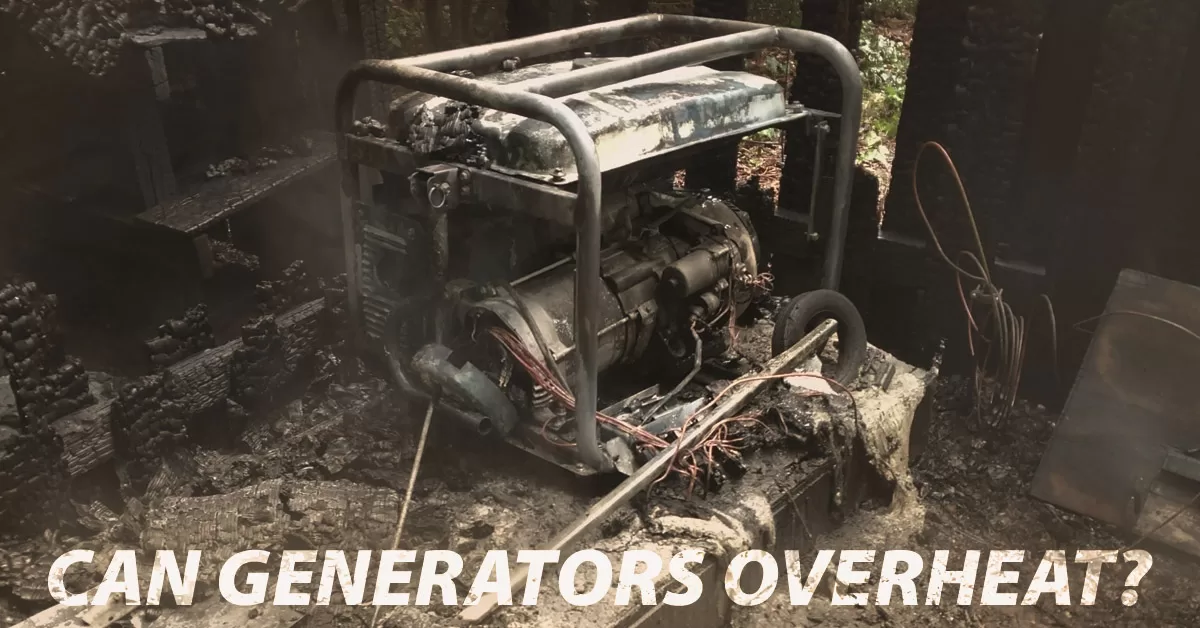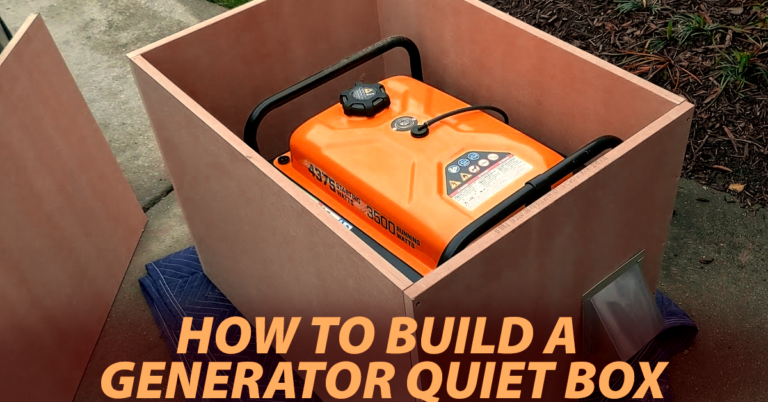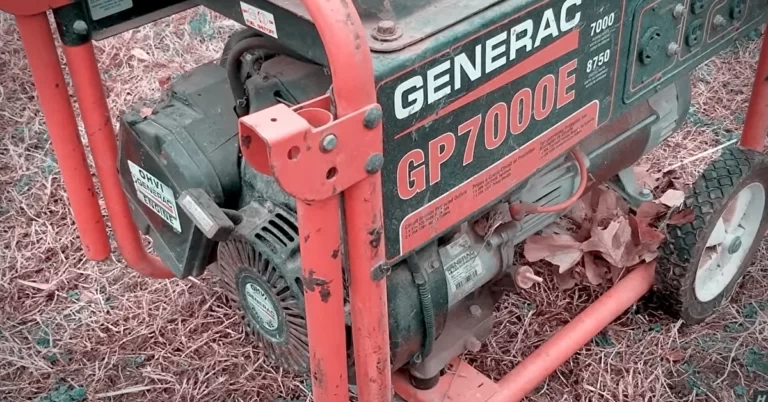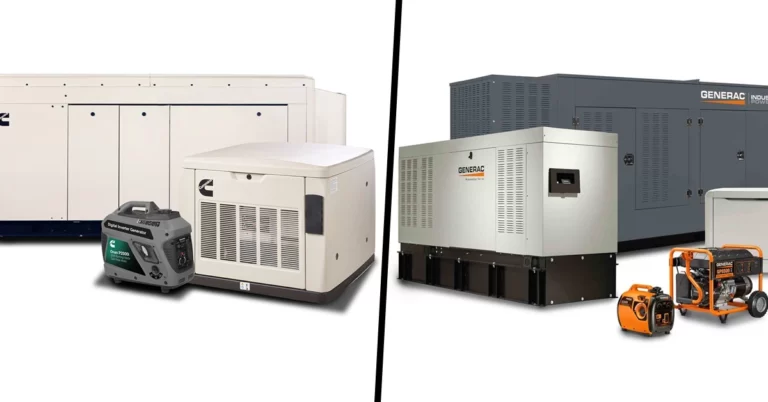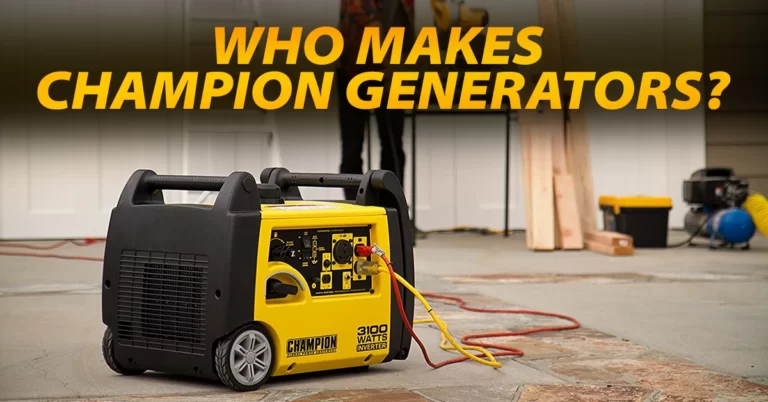Can Generators Overheat? Common Causes & Solutions
Just like any mechanical item, generators may face problems if they are not properly reset and maintained and are vulnerable to wear and tear. Overheating, which might harm the generator and even leave it useless, is one possible issue with generators. It’s critical to comprehend the reasons, symptoms, and solutions to the overheating issue if you want to keep your generator running securely and effectively. An overview of the subject “Can Generators Overheat?” is provided in this post.
What Factors Can A Generator Over Heat?
Yes, generators can overheat. There are several factors that can contribute to a generator overheating, including:
Blockage Of The Exhaust Pipe
It’s critical to set the generator in a location with sufficient airflow and to make sure the exhaust pipe is free of any debris or obstacles.
Filthy Filters
Regular filter replacements are necessary to keep the engine’s internal clean. Overheating and internal engine damage are also risks associated with filthy filters.
Electricity Overload
It’s crucial to adhere to the manufacturer’s peak wattage load recommendations and to take care not to overload the generator by connecting too many appliances or extension cables.
Structure-Related Harm
A portable generator that has structural problems as a result of a collision or drop may have problems that cause it to overheat. In order to identify the root of the problem if this happens, it’s crucial to have the generator evaluated by a service specialist.
Outside Heat
The generator may overheat in direct sunlight or in very hot weather. Making a canopy or shade to shield the generator from the sun is a smart idea.
Maintenance Lack
It is possible for the generator to overheat if normal maintenance is neglected, such as changing the oil or the air filter.
High-Altitude Generator Operation
Higher elevations may make generators less effective, which might make them more prone to overheating.
Leaks
It’s critical to ensure that clamps and gaskets are firmly fastened. Leaks may result in low fluid levels, and when the engine warms up during operation, leaked oil can potentially catch fire, severely damaging the generator.
Faulty Wiring
Make sure the insulation surrounding the wires is safe and not exposed by inspecting any extension cables. Damaged wiring has the potential to cause system shorts and engine overheating.
Running The Generator Continuously For Too Long
The generator may overheat if it is left running for extended periods of time without a break. It’s crucial to abide by the manufacturer’s instructions for how long the generator should operate continuously and give it a rest if required.
Using the Wrong Fuel
The generator may operate badly and perhaps overheat if the wrong fuel is used, such as fuel that contains ethanol or is polluted. It’s crucial to use the right gasoline, as advised by the manufacturer.
Incorrect Levels Of Oil
For the generator to operate correctly, the right oil levels must be maintained. The engine may overheat if the oil levels are too low.
Worn Or Damaged Components
Overheating might occur as a result of elements of the generator wearing out or being damaged over time. The generator should be frequently inspected, and any worn or broken components should be replaced as necessary.
You can help ensure that your generator operates effectively and securely by being aware of these possible causes of overheating and taking action to avoid them.
Overheating Generator Symptoms
There are a number of signs that a generator may be overheating. These consist of:
Engine Temperature Rise
The engine of the generator may be operating hotter than usual, which might indicate that it is overheating.
Unusual Sounds
The generator may be overheated if it is creating odd sounds like buzzing or banging.
Decreased Power Output
It may indicate overheating if the generator’s power output is lower than usual.
Steam Or Smoke?
It may indicate overheating and pose a fire risk if the generator is emitting smoke or steam.
Shut-Down
Overheating may be the cause of an unexpected generator high temperature shutdown.
Unusual Smells
It may indicate overheating if the generator is emitting strange odors, like a burning odor.
Decreased Performance
It may indicate overheating if the generator is not operating as well as it should.
It is crucial to respond if you experience any of these symptoms in order to manage the situation and stop additional overheating. This can include shutting off the generator, letting it cool down, and doing troubleshooting.
How to Prevent Generator Overheating
To stop a generator from overheating, you may do a number of things:
Proper Ventilation
Ensure that the generator is positioned in a well-ventilated location and that nothing is blocking the airflow with trash or other things.
Don’t Overload
Avoid exceeding the manufacturer’s suggested maximum peak wattage load and take care not to overload the generator by connecting too many appliances or extension cables.
Regular Maintainance
To keep the generator operating properly and efficiently, do routine maintenance on it, such as changing the oil and air filter.
Use the Correct Fuel
To make sure the generator is operating correctly, use the fuel the manufacturer suggests.
Ensure Proper Oil Levels
To avoid overheating, make sure the generator’s oil levels are at the proper level.
Replace Any Worn-Out Or Damaged Parts
To make sure the generator is operating correctly, examine it often and repair any worn or broken components as necessary.
Use At The Proper Temperature
To prevent overheating, avoid operating the generator in excessively hot or cold weather.
What To Do If A Generator Does Overheat
In the event that a generator overheats, it is crucial to follow these instructions:
Precautions For Safety
It’s critical to switch off the generator right away and disconnect any connected equipment if you see smoke, steam, or a burning odor coming from it. Keep a safe distance away from the generator, and wait until it has cooled before touching it. If the generator is situated in a small area, you should leave the area and, if required, contact emergency services.
Procedures To Follow To Cool The Generator
After you have performed the necessary safety measures, you may begin to cool the generator. This can include using a fan to help remove heat or letting the generator rest for a while to cool down.
How To Analyse And Resolve The Problem
You may start investigating and resolving the problem when the generator has cooled down. This may include examining the oil and fuel levels, the air filter, and the spark plugs, as well as looking for any broken or worn-out components. It is crucial to get the generator evaluated by a specialist if you are unable to identify the overheating’s source or if you are unable to resolve the problem.
How To Cool A Portable Generator Overheating In A Shelter?
- Make sure the generator is situated in a space that has good ventilation. This will prevent the generator from overheating by allowing heat to escape from shielded or covered areas.
- A limited or enclosed space or covered location should not be used for the generator. By doing this, heat will not build up, and the generator will operate more effectively.
- On the generator, think about mounting a cooling fan or fastening a little portable fan. This will assist in air circulation and maintain the generator’s cooling.
- To shield the generator from the elements, use a cover. The generator may be kept dry and protected from overheating from the sun or other environmental factors with the aid of a cover.
FAQs
-
Can A Generator Overheat?
If a generator is overworked, insufficiently vented, or not maintained correctly, it might overheat.
-
What Is The Generator Overheating Causes?
Insufficient ventilation, an overload of power, or a lack of routine maintenance, such as changing the oil or cleaning the air filter, may all cause a generator to overheat.
-
What Happens If Generator Overheats?
A generator overheating might cause excessive heat to emanate from it, a reduction in power production, or an automated shut-off of the generator.
-
How Do I Control An Overheating Generator?
If your generator overheats, it’s crucial to shut it down right away and let it cool before trying to identify the issue. It is recommended to get help from a specialist if the issue continues.
-
How Can I Avoid Having My Generator Overheat?
Make sure there is enough ventilation, avoid overloading the generator with power, and perform routine maintenance like oil changes and air filter cleaning to prevent a generator from overheating.
-
Can Using A Generator In A Small Area Lead To Overheating?
A generator requires appropriate ventilation to remove the heat it produces while operating; therefore, running one in a confined location may lead to overheating. The generator may overheat if there is inadequate airflow.
-
Can Using Incorrect Oil Cause A Generator To Overheat?
Yes, using improper oil in a generator might lead to overheating since it might not be able to adequately lubricate the moving components. Friction from this might result in increased heat and the risk of overheating.
-
Can Overheating Result From Using A Generator That Is Too Small For The Load?
Using a generator that is too small for the load might lead to the generator overheating since it will be operating harder than it is intended to. This may result in more heat and friction, which might overheat the generator. It’s crucial to match the generator’s size to the load.
-
Can An Overheated Generator Be Caused By A Blocked Air Filter?
Since a generator requires a constant flow of cold air to disperse heat, a blocked air filter may lead to an overheated generator. The generator may overheat if the airflow is restricted by a blocked air filter. The air filter has to be kept clean.
-
Can A Generator Overheat In The Sun?
Yes, a generator may overheat if it is kept in direct sunlight for a lengthy amount of time. The heat from the sun may cause the generator’s internal and exterior components to grow hot, and if the generator’s cooling system is not operating correctly, it may be unable to disperse the heat created by the engine, which can lead to overheating.
-
What Causes A Diesel Generator To Overheat?
A diesel generator may overheat owing to a number of issues, including inadequate coolant levels, a defective coolant pump, clogged air filters, or a broken thermostat. Other probable reasons include a failing water jacket heater, a build-up of combustion deposits in the engine, or a defective governor that governs the engine’s speed. In certain situations, a diesel generator may also overheat if it is being run at full load for a lengthy period of time, or if it is being utilized in an atmosphere that is too hot.

